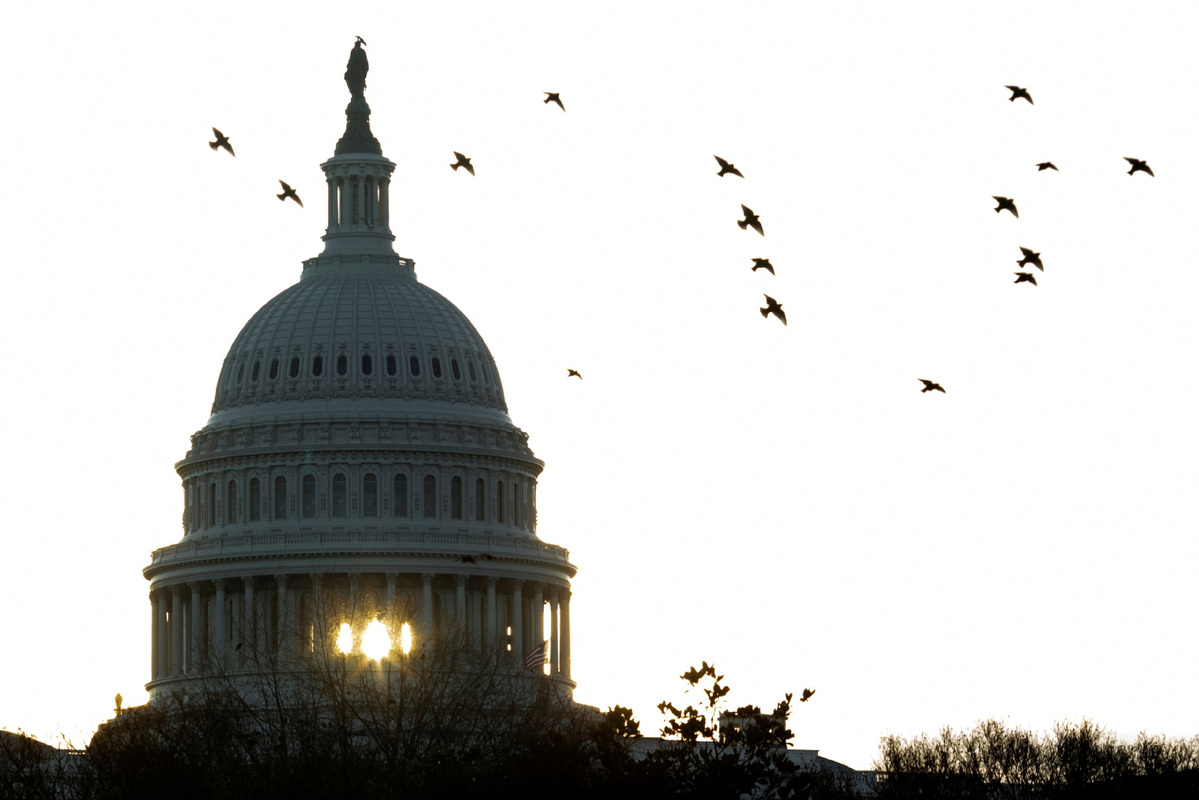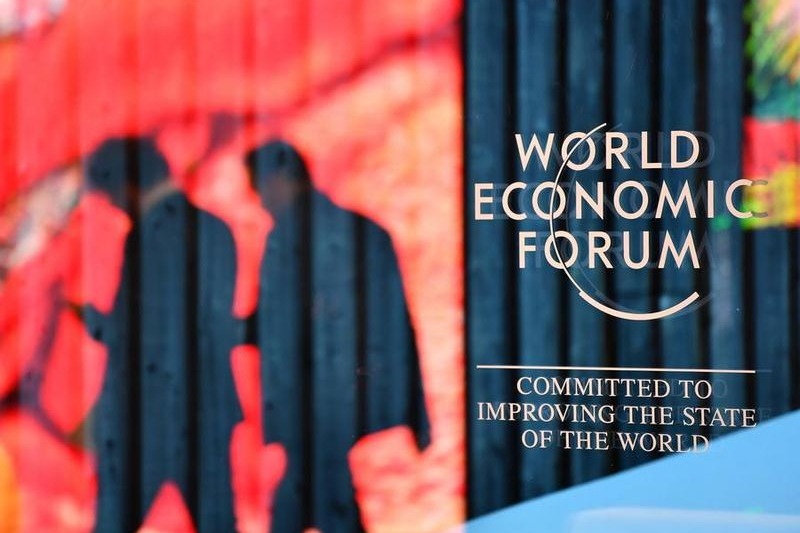Political path of US could shift
By AI HEPING in New York | China Daily Global | Updated: 2022-11-09 12:07

Democrats and Republicans fought for control of Congress in midterm elections Tuesday that could determine the future of President Joe Biden's presidency.
The highest inflation rate in decades have cast doubt over Democrats' prospects for keeping control of Congress. The GOP is expected to win enough House seats to control it; the Senate may tilt to Democrats, ending a 50-50 tie. Control of the Senate may be decided by races in Georgia, Arizona and Pennsylvania.
Governor races took place in 36 states, with key contests in New York, Arizona, Michigan and Oregon.
Voters will decide on ballot questions ranging from abortion to marijuana and the environment. The abortion measure marks the first opportunity for people to vote on the issue since the US Supreme Court on June 24 overturned Roe vs Wade, which provided a constitutional right to abortion.
"If we lose the House and Senate, it's going to be a horrible two years," Biden told a small crowd gathered inside a hotel ballroom on Nov 4 where cameras weren't allowed.
Even if the GOP captures only the House, Biden's ability to get his top priorities passed could be disrupted as Republicans work to undo much of what he accomplished in the first two years of his term.
The biggest unknown on Tuesday in some states may be millions of mail-in ballots. Some states give local election offices several weeks before Election Day to count them. In other states, that process can't start until Election Day or shortly before, meaning those ballots might not get counted until the next day or even later. Court challenges to counting them could further delay any close election result or even wipe out some ballots.
Winners especially in key races may not be known for days.
In the 2020 presidential election, results in 16 states still hadn't been called as of midnight Eastern Time on Election Day. Key swing states — including Pennsylvania and Nevada — didn't have their races called until the following weekend because both places were still counting mail-in ballots, and both presidential outcomes were within less than 5 percentage points.
The first polls closed in Florida, Georgia, New Hampshire, South Carolina, Vermont and Virginia.
According to The Associated Press, the first new senator is Peter Welch, a House Democrat who won his bid to replace Democratic Senator Pat Leahy of Vermont, who is retiring at the end of this year.
Senator Tim Scott, a Republican, easily won re-election in South Carolina. Both didn't face competitive races.
In Arizona, the Republican National Committee announced it has filed suit seeking to extend voting hours due to tabulation glitches on Tuesday.
Wes Moore will become Maryland's first black governor, and in Massachusetts, Maura Healey will be the nation's first openly lesbian woman elected governor.
Polls won't close until late in some of the biggest battlegrounds, Arizona, Nevada, California and Oregon. Vote counting is likely to be lengthy in Pennsylvania, where a competitive governor's race will shape abortion laws and where a very tight Senate campaign could determine party control in Congress' upper chamber.
Generation Z officially has a seat in Congress. Maxwell Alejandro Frost, a 25-year-old Democrat, won his election on Tuesday in Florida's 10th Congressional District over Calvin Wimbish, a Republican, according to AP.
Reaction from some voters across the country on election night ranged from criticism of candidates in New York City avoiding tough issues such as homelessness and a call for a less toxic political environment to fear of a GOP takeover of Congress.
Maura of New York City, who declined to give her last name, said crime was made a bigger issue in the race for governor than the growing homelessness problem, for which "neither candidate seems to have a workable answer".
Matthew Bunday, a software engineer in New York City, said, "I feel like I was a pretty disengaged voter this election. To be honest, I'm someone who thinks there's some benefits to having a divided government because it kind of forces the parties to work together during that time, or sometimes just nothing gets done."
Erin Fang, a 29-year-old Los Angeles resident said: "I think we have also become so politically polarized as a nation, I do hope to see more cooperation and a less toxic political environment as we tackle a broad range of issues together."
David Chao, a retired marketing consultant in the San Francisco Bay Area, said: "I have seen fake news and misinformation spreading on Twitter and WeChat trying to scare Chinese voters from voting. The economy will do poorly in this toxic environment. I fear the GOP will trash whatever economic growth we had and push the country into recession.''
House Minority Leader Kevin McCarthy of California, who is running unopposed to be House speaker if Republicans win the majority on Tuesday, said he would focus first on immigration.
"The first thing you'll see is a bill to control the border first," he told CNN an interview. "You've got to get control over the border. You've had almost 2 million people just this year alone coming across."
McCarthy also said Republicans will demand spending cuts in exchange for lifting the debt ceiling, which likely will set up a showdown between Democrats and Republicans.
Republicans also have warned about investigations targeting Biden and his son Hunter and alleged political interference by the FBI and Justice Department.
The GOP has vowed to roll back parts of Biden's signature legislation, the Inflation Reduction Act, including new, higher taxes on corporations, and they could work to roll back or challenge some of the president's climate initiatives that are included in the package.
Biden has promised to push for a nationwide right to abortion, but it wouldn't advance past the GOP. Other programs, like student loan relief, could be subject to blocking efforts by Republicans.
Biden hasn't vetoed any bills so far, as Democrats control Capitol Hill. But he will be poised to use his veto pen in rejecting potential Republican attempts to reverse his agenda.
As he told that small crowd last week, "The good news is I'll have a veto pen.''
As millions went to the polls, law enforcement authorities and election officials were on alert nationwide for potential politically motivated threats and violence including abuse directed toward poll workers and citizen-led surveillance of voters and election equipment.
The Justice Department expanded its effort to monitor elections to 64 jurisdictions in 24 states.
Even before voters headed to the polls, election-related litigation accelerated as campaigns and outside groups sought last-ditch challenges to voting rules in Michigan, Georgia and Pennsylvania. The challenges, mostly focused on how mail-in and absentee ballots are treated, could affect thousands of votes.
























